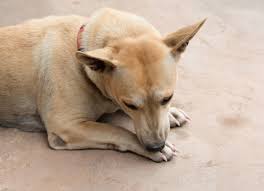How many strawberries can a horse eat? How many strawberries should a horse eat? You should feed no more than six to 10 strawberries per week, and ideally, no more than one to two per day. It is important you wash the strawberries prior to feeding them to your horse as they might have residual chemicals or pesticides on them.
What fruit can horses not eat? Any kind of a fruit that has a “stone” in it (or pit), like whole peaches, avocados, and cherries, can be dangerous for a horse, because they could choke on the pit. If your horse consumes any of these three things in excess, then it can lead to very bad gas and colic problems that could hurt them.
Can horses eat strawberry stems? Though it is not recommended to feed your horse the leaves off the strawberry plant, the wild berries are just fine (source). What is this? Strawberries should be fed occasionally and in moderation. Strawberries, as well as all other fruits that are safe for horses to eat, can easily fit into a well-balanced diet.
What fruit and vegetables can horses not eat?
8 Foods You Should Never Feed to Your Horse
- Chocolate. Just like dogs, horses are sensitive to the chemical theobromine which is found in the cocoa which is used to make chocolate.
- Persimmons.
- Avocado.
- Lawn Clippings.
- Fruit with Pips and Stones.
- Bread.
- Potatoes and Other Nightshades.
- Yogurt and Other Dairy Products.
How many strawberries can a horse eat? – Additional Questions
Can horses have tomatoes?
Despite being delicious and a cook’s favorite ingredient, tomatoes are toxic for horse health. These fruits are of the Solanaceae family or the nightshade members, just like horsenettle, tobacco, chili, bell pepper, eggplants, and potatoes.
Can horses eat bananas?
Almost any fruits, and many vegetables, are safe treats for healthy horses. Apples and carrots are traditional favorites. You can safely offer your horse raisins, grapes, bananas, strawberries, cantaloupe or other melons, celery, pumpkin, and snow peas.
Can horses eat cucumbers?
Can Horses Eat Cucumbers? Yes, horses can eat cucumbers – a welcome answer to those of you with an overabundance of cucumbers growing in your gardens. Cucumbers are a fantastic source of vitamins such as A, K, and C, as well as potassium. What’s more, cucumber skin provides horses with a natural dietary fibre.
Can horses eat broccoli and cauliflower?
Lydia Grey says that cruciferous vegetables “do not technically contain a toxic agent but their tendency to lead to excess gas production in the GI tract worries some people.” Horsemart includes cabbage, broccoli, and cauliflower in their category of foods dangerous for equines.
Can horses eat pumpkin?
Orange pumpkins, including the seeds are safe to feed to horses. Michigan State University Extension offers these reminders when giving your horse a seasonal treat such as pumpkin: Smaller pieces – slice pumpkin into smaller pieces. One slice at a time – do this to prevent potential choking.
Can horses eat peanut butter?
We can conclude that horses can safely consume peanut butter in limited amounts. Please remember that it should be a seasonal ‘treat. ‘ It is crucial to limit their consumption to 1-2 tablespoons. Don’t even try experimenting with this for horses with allergic reactions or metabolic syndrome.
Can horses eat bread?
There is no harm in occasionally feeding bread, but it is not the most nutritious feedstuff when used as the sole concentrate. While bread is chock full of calories, it provides few nutrients. When only bread is fed with hay, the major nutritional problem is an imbalance and/or deficiency of some minerals and vitamins.
Can horses eat peppers?
Vegetables Not Safe for Horses
These vegetables are absolutely NOT safe for your horse to eat: avocados, Brussels sprouts, cabbage, onions, regular potatoes, tomatoes, and peppers. Avoid feeding horses these vegetables at all costs!
Can horses eat popcorn?
Is Popcorn a Good Treat for Horses? Popcorn is a good treat for horses, as long as the horse’s health won’t be negatively affected by extra starch in its diet. Popcorn is safe for most horses, but for some, health concerns like insulin-resistance and dental problems make popcorn a very risky choice.
Can horses eat banana peels?
Horses can eat banana peels, but not all of them will be interested in eating them, owing to their bitter taste. The peels are just as healthy for your horse as the banana itself, also containing potassium and vitamin B.
Can horses eat cheese?
Like most animals, horses are lactose intolerant, so it’s important to keep them away from dairy products like milk and cheese. If you did give your horse dairy? He or she could suffer from diarrhoea.
Can horses eat honey?
Horses Can Eat Honey
You can add it as a topper to other favorite snacks, too. It is internally and externally healing with powerful properties. Granted, honey shouldn’t be an everyday treat—but it can occasionally be a healthy and beneficial food source.
Can horse eat oranges?
Oranges: Oranges are also an excellent source of vitamin C. To feed an orange to your horse, peel off the skin and cut the orange in half. Then, cut the orange two more times to make eighths. Coconut: You might not think that horses eat coconuts, but they do!
Can horses eat gummy bears?
Safe, but only in small amounts
It’s even fine for horses to indulge in – get this – sugar candies such as jelly beans, gummy bears and peppermints.
Can horses have watermelon?
Watermelon is not harmful to horses. In fact, it is a great treat. In some European countries, watermelon rind is a common horse treat, though it should be cut into small, easy-to-chew pieces. If large pieces of rind are given, horses may choke.
